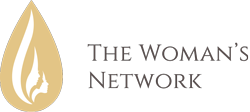Contents
Other qualities of a good sponsor include empathy and understanding, the time and willingness to devote to sponsorship, and a recovery that demonstrates the power of the 12 steps and Alcoholics Anonymous. In a study in the journalAlcohol and Alcoholism, researchers examined the attributes of people who became sponsors in the 12-step model. They found that the median length of time sponsors had participated in the program was 9.5 years, while the median length of sobriety was 11 years.
Certainly, there are as many different styles of sponsorship as there are personalities in the fellowship. Some sponsors are gruff drill instructors, and we may find we need that kind of discipline and accountability, especially early in our recovery. Others may take a reflective or contemplative approach that leads us down the path of knowledge to answers that were always there. It’s suggested that you pay attention in meetings to those predecessors whose words resonate with you. You might hear it said that a sponsor should be someone who has something you want, but that’s not a reference to material wealth.
An addiction counselor seeks to get to the root of the addiction. When the counselor meets a new client, the first session, or the first few sessions, will involve discussing the addict’s personal history. Establishing trust between an addiction counselor and a client can take some time, and it’s natural for an addict to be guarded about opening up to a new person. You may decide that working with a recovery coach is the right choice for you if you want to be able to choose the types of issues you would like to work on. A recovery coach offers encouragement to set goals which will help to solve problems in practical ways. If you are looking for more guidance and less of a self-directed relationship with the person you are working with, then this may not be the best fit.
It may be a sign that they’re a great sponsor, but you’re better off choosing someone who is more available. Active addiction does quite a number on our ability to regulate our emotions in a healthy way. This is a skill that is learned over time, but it is always good to have a voice of reason readily available. And Dr. Bob became the first two members of Alcoholics Anonymous. The word “sponsor” was not used, but Bill carried the message to Dr. Bob, who in turn safeguarded his own sobriety by mentoring countless other alcoholics.
Specifically, there’s a tendency for people to feel like twelve-step recovery — known to be a spiritually-oriented recovery fellowship — is ineffective, especially when compared to other options that are available. However, as you’re about to learn, there are components of the twelve-step method that are extremely useful to the addiction rehabilitation process overall. On the other hand, a newly recovering addict can also benefit from sponsorship by being properly guided throughout the entire process of recovery. Newcomers to the recovery phase of addiction rehab can most likely feel frustration and self-pity. But because of the sympathy and care given by their sponsors, they can strongly overcome the challenges and make a smoother transition to sober living. Being a sponsor leads to multiple benefits both for the person taking on the role and those around them.

Drug & alcohol withdrawal can be agonizing — even life threatening. We highly recommend individuals do not attempt to detox on their own. The Plymouth House has excellent relationships with numerous medical detox facilities locally and out-of-state that can help you safely and comfortably quit using drugs or alcohol.
When Bill W., the founder of Alcoholics Anonymous, first conceived of the AA program, the word “sponsor” did not exist, but the concept of mentorship did. If you’re not familiar with Bill W.’s story, he was a low-bottom alcoholic who was facing his own death from alcoholism. While in the hospital, he had a white-light experience that alleviated his alcoholism just enough for him to leave sober. He was sober and doing well for a time, but one evening he felt a strong urge to drink. He looked over at the glitzy bar — people drinking merrily, celebrating and making liquor look glamourous.
Over half of those who were interviewed recognised that sponsoring relationships provided an important relational space within which to practice new identities and productive lives in the wider self-help community. Sponsorship also aided the extension of meaning making into wider aspects of their lives. The relationships sponsors engage in are based on shared experiences, the shared goal of recovery and mutual recognition and acquaintance. However, over the longer term, it is not unusual for sponsors to develop a friendship group with those who they were sponsored by or who they provided sponsoring to.
Interview Potential Sponsors
That’s why we take an integrated approach to help people recover from both challenges at the same time. At the same time, sponsors can be a safe place to turn to when you’re tired, frustrated, upset, anxious, depressed, irritable, or moody. Having a non-judgmental person to discuss your recovery with can be difficult to find, but you can share your deepest thoughts and feelings with your sponsor without fear of judgement.
This study has shown that people who provide sponsorship to others in recovery derive a significant range of psychological and social benefits. These benefits are wide ranging and are key to the ongoing recovery of the sponsors tips for reducing alcohol consumption themselves. They include increased self-awareness, increased psychological wellbeing, social competence, positive social approval and status, meaning making and practical access to non-using social relationships and contexts.
- If a sponsor makes you feel as if you are heard and valuable, they might be the right match for you.
- Don’t be alarmed when your sponsor points out behaviors that don’t support addiction recovery.
- Examining the old hurt and dealing with it will strip it of its power to continue to stir up strong emotions in a person.
- Although there are no hard and fast rules for choosing a sponsor, most experts agree that you should look for someone who has maintained at least one year of sobriety from drugs and alcohol.
As a newcomer to any 12-step program, you may feel shy or embarrassed about asking someone — sometimes a complete stranger — to help guide you on your recovery from alcoholism or drug addiction. In fact, most program veterans are honored to be asked to become a sponsor and will take you on willingly. Our Outpatient Program allows clients who have completed previous addiction treatment programs binge drinking for teens to continue their recovery in a supervised and safe environment. A sponsor can provide you with a wealth of addiction recovery and sober resources. For example, your sponsor can tell you about peer support groups that helped them or about sober activities in your area. They might connect you with aftercare support programs, employment opportunities, or help you find sober living.
Sponsors and 12-Step Programs
Throughout the recovery process, you may feel depressed and weak. Sponsors have experienced the same type of feelings and can help strengthen you when you’re feeling weak. They can also help you realize that you’re not hopeless or powerless and that setbacks don’t mean you have failed. Their stories of life before and after recovery can help give you hope, boost your confidence when you’re down, and teach you to approach recovery from an optimistic perspective.

Some people who do not have much support often blame relapse on others, but you always have a choice. The greatest responsibility of a sponsor is to make sure you always know there is an alternative to drugs or alcohol. No matter how bad things get, you can get help and choose differently. They know it happens, and they may have relapsed themselves at some point in the past. Rather than shaming you, a sponsor will be someone you can go to for support.
In general, however, most experts believe that it takes years for people with addictions to develop new habits and thought patterns that can protect them fromthe damage that addiction can cause. Most people need time to think about these things, and they need to practice them over a period of months or years until they will beer cause acid reflux become a force of habit, rather than a conscious choice. So they can be a wellspring of support for people who are feeling low, sad, and alone. That’s a palpable sense of community people might sense as soon as the first meeting starts. The habits people use in order to maintain an addiction can ruin relationships.
A sponsor should make you feel comfortable enough to be honest about your feelings and give you advice about how to manage your emotions safely. A helpful sponsor should be attentive and listen closely to what their sponsee shares with them, so they can give the most helpful advice possible. They should ask questions to clarify and try to read between the lines for a more complete understanding of what they’re sponsee is going through in their recovery process. If a sponsor makes you feel as if you are heard and valuable, they might be the right match for you. You might also benefit from experiencing a different perspective on your alcoholism or drug addiction.
Alcoholics Anonymous and Narcotics Anonymous encourage members to find a different sponsor if the one chosen initially is no longer a good fit. It operates independently from any type of religious affiliation or government sponsorship. People who think they may be addicts are invited to come to meetings, and the organization says that no one comes to them by accident. Much of AA is self-explanatory, but there are some language barriers for new members.
How Sponsorship in Recovery is Beneficial
Connecting with a sponsor is often seen as the prime way to really tap into the power of the 12 steps. A sponsor works like a guide to the culture and can help to explain and decode what the system is about and how it works. What does an AA sponsor do aside from those previously mentioned? Well, another thing that he or she can do is help you become a sponsor yourself. Through his or her guidance and mentoring sessions, you can present yourself as a sponsor to other newly recovering addicts.

The coach helps the participant to develop their confidence and motivation by providing encouragement to the participant. The coach reminds the participant that making positive changes takes time and that recovery is a process instead of a destination. This type of recovery support service usually takes place as part of an organization offering services. The recovery coach may be one of a number of staff members working in conjunction with professionals and others to serve clients. As an addict moves through the steps of recovery, they will change and develop.
3. Meaning Making and Psychological Wellbeing
A recovery coach asks for and gets permission from the participant to offer information and provide resources. Stability and Sobriety — Someone struggling with sobriety may find it difficult to guide you through your recovery. However, some members of your group may be better equipped for sponsorship than others. Someone who has maintained sobriety for years may be more valuable than someone who joined AA a few weeks ago. Participants are offered help to learn to resist the urge to use drugs or alcohol. Participants in a 12-Step program follow a series of steps, in order, to achieve sobriety and healing.
Becoming an AA sponsor gives you the opportunity to help others in need, which can have a significant impact on maintaining your sobriety while helping others maintain their sobriety. While sponsorship is a great way to continue your recovery journey and help others, you must remember there is a lot of responsibility that comes with sponsorship. Treating dual diagnosis and co-occurring disorders is vital to help individuals struggling with addiction and mental health challenges.
Individualized treatment
This is a trusted resource that can help to explain the foundations of the program and all of the little things people are expected to do in order to make it work for them. An AA sponsor is your direct source of information and guidance as you work through The Rooms in the 12 Steps program. To help you work the 12 Steps and understand its purpose in your path to recovery is the primary role of a sponsor. He or she can also become your good listener whenever you feel down and frustrated, or your direct conscience when you feel like going into a relapse. Aside from those already mentioned, there are other AA sponsor responsibilities that you need to know about.
Can Sponsors Be Changed?
They must recognize that every person is different and what each person needs to stay sober may vary. They must be able to offer kindness and respect even when their sponsee does things their own way and refrain from shaming or judgment. Recovery, to use one analogy, is like an Olympic-sized swimming pool. For some, the only way is to dive into the deep end without hesitation, and this method has worked for many.

